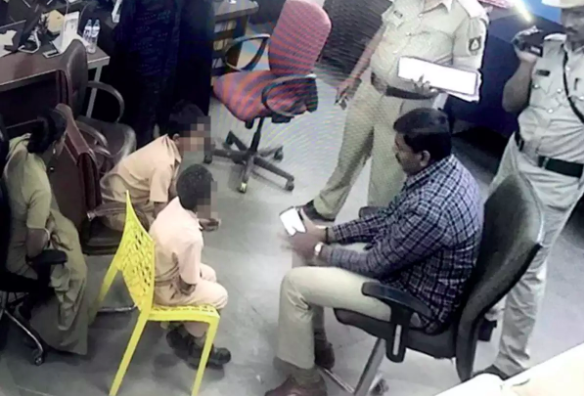Indian court questions interrogation of children in anti-government play
Bengaluru (Reuters) – An Indian court on Friday ordered a state government to explain why police interrogated children who performed a play critical of a new law, a lawyer said, in a case that has raised questions about freedom of speech.
Parliament in December passed a law, championed by Prime Minister Narendra Modi’s ruling Hindu-nationalist party, aimed at facilitating citizenship for migrant members of non-Muslim religions from India’s Muslim-majority neighbours.
Critics say the law violates India’s secular constitution and discriminates against Muslims. At least 25 people have been killed in protests against it.
Students at a school in Karnataka performed a satirical play on Jan. 21 in which references were made to “dictators” and dialogue suggested hitting Modi with a shoe, which is seen as particularly insulting.
Police, lawyers and school officials said that following a complaint from a member of the public, the headmistress of the school, Farida Begum, and the mother of one of the children who took part in the play were arrested on Jan. 30.
Police later questioned children as young as nine, some of them as many as five times, said Thouseef Madikeri, chief executive of a foundation that runs the Shaheen English Primary and High School, and Narayan Ganesh, a lawyer for the two accused women.
Karnataka’s top court on Friday gave the state government, ruled by Modi’s Bharatiya Janata Party (BJP), until next Wednesday to respond to a rights group’s allegations that police illegally questioned the children, said Nayana Jhawar, a lawyer for the group.
A senior police official, Basweshwar H., said the incident was being investigated. He declined to comment further.
The court granted bail to headmistress Begum and the mother, according to Keshavarao Srimale, a lawyer for the foundation that runs the school. The women were expected to be freed from jail on Saturday, he added.
According to an initial police report, seen by Reuters, the complainant accused school officials of raising “ill-will and fear among communities” by staging the play.
The two women have been charged under a colonial-era sedition law that rights groups have long argued stifles freedom of expression.
“It’s a silly case. Lampooning political leaders is not sedition,” said Madikeri.



